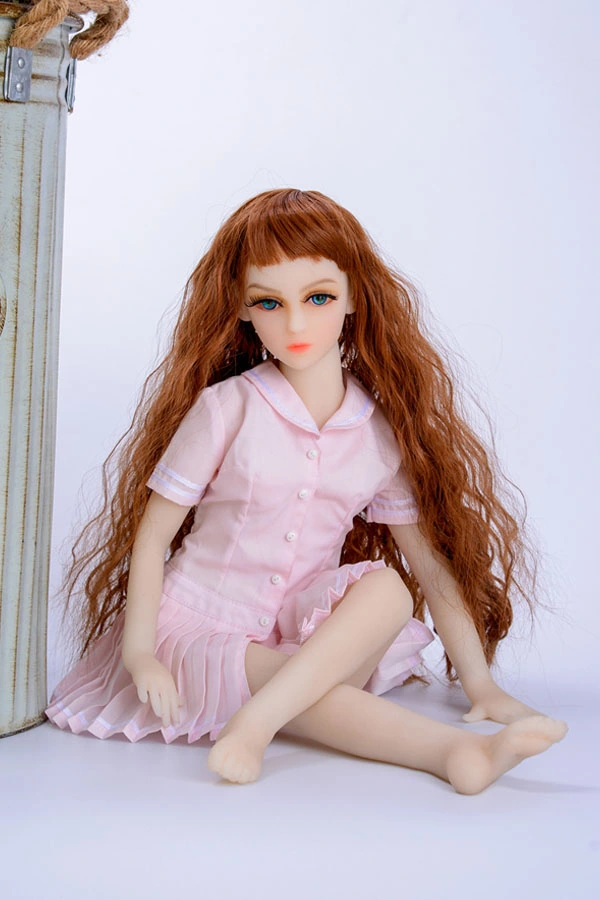sex love doll androgyny body Relevant Information
Is it strange to own several sex dolls?
The sex doll industry has grown rapidly in recent years, with ultra-realistic and high-tech dolls from brands like RealDoll, EXDOLL and WM Doll gaining widespread media attention. This increase in realism and social exposure has led to a substantial rise in the global sex doll market. There are many reasons why people choose to own sex dolls: • Curiosity and interest in their realistic design. Many are fascinated by how lifelike dolls have become. •Sexual gratification and fantasy fulfillment. For some, dolls provide a sexual outlet that is always available and acquiescent. •Companionship. Those who are single, widowed or just lonely may find dolls help ease their need for intimacy and social interaction. •Art and creativity. Some doll owners are primarily interested in designing and customizing the dolls with clothing, makeup and photographs. They see their dolls as an artistic medium. •Collecting. Some doll owners accumulate multiple dolls as a collection, appreciating them more as works of art or design than for sexual purposes. The Cheap Sex Doll in USA community is diverse, ranging from those who use dolls privately for sex to public hobbyists who organize doll meet-ups and photoshoots. While some activities are controversial, many doll owners argue that as long as dolls are seen as inanimate objects rather than humans, diverse uses of them should be accepted and respected. Brands and doll owners report customers of all genders, relationship statuses, professions and interests. Reasons for buying a doll are deeply personal. Some own just one, while others have an entire collection of “partners” or "family members". But for most, their dolls go beyond just sex - they provide friendship, art, purpose and an outlet for creativity. While dolls are an unusual interest, owners argue they should not be judged or stigmatized given the diversity of reasons for their use and the fact they are not human. Doll ownership is a complex topic, but with more open discussion and understanding, these taboos may gradually fade into acceptance.







Is having sex with a sex doll considered cheating?
Whether using a sex doll counts as cheating on a romantic partner is a complex issue that depends on several factors: •The rules and boundaries in the relationship. If a couple has openly discussed and agreed that using a doll would feel like cheating, then it should be avoided out of respect for their partner's feelings. However, in many relationships this topic has not been addressed, leaving it open to interpretation. •Seeing the doll as a person vs an object. If someone imagines the doll is a real romantic or sexual partner, it may feel more like cheating to their human partner. But if viewed as just a sexual aid, similar to any other adult toy, most would not consider it cheating. •Replacing intimacy with a doll. If using a doll led to a lack of physical or emotional intimacy with one's partner, it could damage the relationship and trust over time. But when used occasionally as a supplement, and not a substitute, for real intimacy, many find it does not negatively impact their commitment to each other. •Discussing doll use with your partner. The healthiest relationships are based on honest communication. While introducing the topic may be awkward, discussing sex dolls openly and honestly with your partner is the best way to set clear expectations, express any concerns, and avoid hurt or betrayal. Comparing each other's viewpoints can help determine what is right for your unique relationship. In the end, the question of whether Cheap Sex Doll in USA constitute cheating depends entirely on the couple and their own definition of fidelity. For those in open or polyamorous relationships, a doll may present no issues at all. But for strictly monogamous couples, a doll could be seen as a threat unless its use is discussed and understood by both partners beforehand. As with many new technologies, sex dolls create complex questions that we must thoughtfully navigate based on our own personal values and relationship dynamics. Rather than labeling them as always "right" or "wrong", we should approach them with an open and discerning perspective.
(91 People Likes) Can money really buy happiness? If yes, how? If not, what can?
Money alone cannot buy lasting happiness. While it may temporarily excite or distract us, material possessions fade and the thrill of new experiences ends. We are left facing ourselves again, with the same inner challenges as before. Constantly buying new things to feel good becomes an empty pursuit. True happiness comes from within, not from anything external. It is not something we achieve or buy, but rather a state we cultivate through choice and practice. Four key ways to cultivate happiness include: Appreciating what you have. Comparing yourself to others or idealized lives fuels unhappiness. But taking time each day to feel grateful for what you have - your health, loved ones, basic comforts - helps shift your mindset to one of abundance and contentment. Living in the present. Worrying about the future or dwelling on the past removes us from the only moment we have - now. Spending a few minutes each day focused on your breath and the present surroundings helps calm your mind and increase awareness and appreciation of the simple pleasures in each moment. Following your passions. Doing things out of obligation or duty often does not lead to happiness. While responsibilities are important, we should also make time to engage in activities that ignite our passions or creativity. Pursuing dreams and talents that are meaningful to us is vital for wellbeing. Connecting with others. Close relationships with people who love and support us contribute greatly to happiness and life satisfaction. Make the time to foster deep connections with family and friends, be open to intimacy, and seek out communities of people with shared interests or values. In the end, happiness comes from the quality of our relationships, the richness of our experiences and our ability to appreciate life as it is - not from accumulating material possessions or wealth. It requires continual choice and practice, but is available to us in any circumstance once we understand how to access it through living with gratitude, mindfulness, passion and connection. This is the art of learning to be happy.
How can sex dolls improve or ruin your life?
Sex dolls have the potential to both positively and negatively impact their owner's lives in several ways: Improve: •Health benefits. For some, a doll provides physical intimacy that can help reduce stress and promote better sleep and heart health. Dolls designed for therapeutic use may also provide massage and acupuncture treatment. •Companionship. Dolls can fulfill social and emotional needs by providing unconditional affection, support and a sense of companionship for solitary individuals. The doll's AI learns the owner's needs and personality to become a customized partner. •Confidence boost. The acceptance and non-judgement provided by a Cheap Sex Doll in USA, combined with the opportunity to freely explore one's sexuality, can increase confidence and self-esteem over time. •No relationship issues. Unlike a human partner, a doll poses no risk of conflict, emotional pain or betrayal. Its sole purpose is to serve and please the owner, with no conflicting interests or priorities. Ruin: •Isolation from real relationships. Reliance on a doll for intimacy and companionship could potentially exacerbate isolation and make it more difficult to connect with real partners in the future. •Unrealistic expectations. Exposure to an idealized artificial partner may foster unrealistic standards for human attraction and affection that cause dissatisfaction with real relationships. •Addiction. In some cases, excessive use of and dependence on a sex doll to meet social and emotional needs could potentially become an addiction that is detrimental to health and wellbeing. Professional counseling may be required to break this addiction. •Shame and stigma. Strong negative societal attitudes toward class="nturl" style="color: red">mini sex doll and their use could lead some owners to experience feelings of shame, embarrassment and anxiety over their interest which harms self-esteem and mental health. •Objectification concerns. Some argue that the use of human-like sex dolls promotes unhealthy attitudes about relationships, intimacy and the objectification of women. However, others view them as primarily sex toys that cater to the ethical exploration of fantasy and create no harm when used appropriately by responsible owners. In summary, sex dolls have the potential for both benefit and harm depending on the individual and how they are used. With moderation and maintenance of real human connections, dolls could enhance wellbeing. But taken to an extreme, they may risk unhealthy isolation, addiction and unrealistic ideals. As with many technologies, responsible and ethical use is key.
What are the pros and cons of women working?
Allowing and encouraging women to work outside the home provides many benefits to society and gender equality. However, it also introduces some potential downsides that are important to consider: Pros: •Independence and choice. The ability to financially provide for themselves gives women greater freedom to make life choices. They can leave unhealthy relationships, support themselves without a spouse, and pursue meaningful careers. •Economic growth. Increased labor force participation by women has boosted economies and tax revenues in many countries. Greater talent and productivity are harnessed. •Role models. Successful working women provide inspiration and role models for young girls to pursue their dreams and break traditional gender stereotypes. •Household income. Dual-income households have higher standards of living and financial security. Families can afford better healthcare, education, housing, etc. Cons: •Work-life balance. The demands of careers and motherhood can be difficult to balance, leading to high stress, lack of leisure time and work-family conflicts for some women. •Fertility impacts. Delaying or interrupting careers to have children can set some women back professionally and financially. However, not all women wish to have children. •Relationship dynamics. Traditional gender roles within relationships may be challenged by women's independence and success outside the home. This can positively or negatively impact relationship satisfaction for some couples. •Child development. Some argue that greater reliance on childcare and less time with stay-at-home mothers may negatively impact children. However, quality time with parents is most important, not strictly the mother's presence. •Objectification. While women gaining independence and professional success is vital, some industries like advertising, media and pornography frequently objectify and hyper-sexualize women's bodies to sell products unrelated to sex or relationships. This propagates unhealthy attitudes. In summary, allowing and encouraging women to participate fully in the workforce has brought substantial benefits to society that far outweigh the potential downsides. However, we must remain vigilant about and work to remedy issues like lack of work-life balance, the erosion of true choice, and the sexual objectification of women for commercial gain. Promoting women's freedom, fulfillment and humanity should be the priority.






















